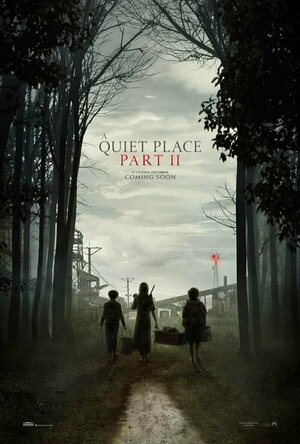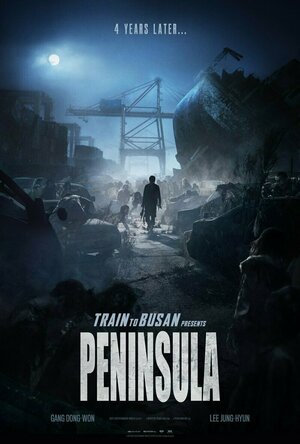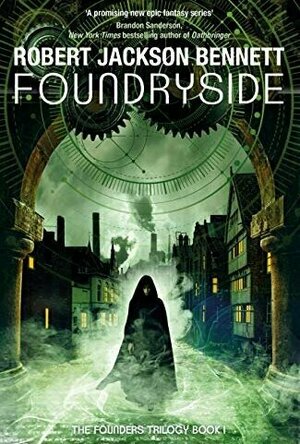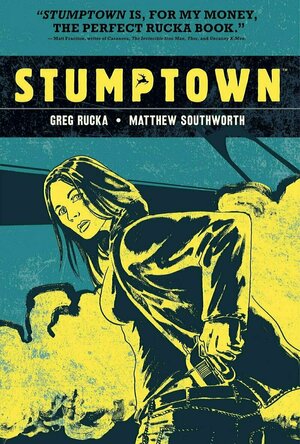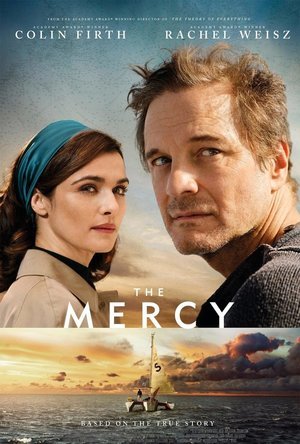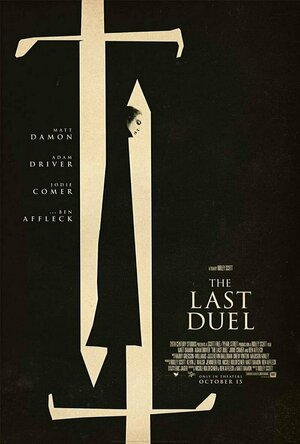Search
Search results
Gareth von Kallenbach (980 KP) rated A Quiet Place: Part II (2021) in Movies
May 25, 2021 (Updated May 25, 2021)
Last year we had a screening for “A Quiet Place Part II” scheduled and eagerly awaited the follow-up to the suspenseful and popular original film. Sadly we all know what happened soon after as a two-week lockdown grew and cinemas around the world were closed.
As cinemas re-open with growing but limited capacity; the film is set for release and will be a great indicator as to if the public is ready to return to cinemas in significant numbers or will they sit it out and opt to see the film down the line on Paramount+.
The film opens with a look at the day things changed for the world as Lee (John Krasinski); does some shopping while news reports come in of an explosion in Shanghai. Enjoying the weather; he joins his family at a Little League game and talks with his friend Emmett (Cillian Murphy) when the game is interrupted by the appearance of a large fireball in the sky.
As they head home; the city falls under attack by deadly creatures and Lee and his family narrowly escape. The film then jumps forward immediately following the conclusion of the first film and Evelyn (Emily Blunt); attempts to lead her newborn son, daughter Regan ( Millicent Simmons), and son Marcus (Noah Jupe) to a safer locale.
When Marcus is injured along the way; Evelyn takes refuge with Emmett who is not happy to have to care for others after the loss of his wife and despite a secure locale in a foundry; demands the family leave the following day.
When an unexpected radio signal appears; Regan is determined to leave and find the source as she knows the frequency of her Cochlear Implant is a weapon against the creatures and she figures if that can be broadcasted and the information revealed; then humanity has a chance to fight back and win.
What follows is a very gripping and intense story as Regan and Emmett attempt to complete the mission while Evelyn and her family endure all manner of threats as they try to survive.
The film builds upon what made the first film so great in that there are strong and relatable characters and some very tense situations. The screening we attended was so quiet you could tell that audience members were so enthralled that they were afraid to make any noise.
The film ups the action and expands upon the universe without losing any of the strong character-driven elements or relying too much upon CGI to carry the film.
John Krasinski writes, directed, and produced the film, and while he has less screen time than he did in the original; the film is the rare sequel that holds its own and actually improves upon the original.
My only issue with the film was that the ending was rather abrupt and left me with several unanswered questions. While this would be more than fine if we were assured of a third film to resolve unanswered elements; word is that a spin-off is in development so hopefully this will resolve the issues I had or at the least co-exist with a third part of the series.
For now; “A Quiet Place Part II” drives home why we need the cinematic experience as from the large screen to the Dolby Atmos sound; the film is a sensory experience that needs to be enjoyed in a communal setting with maximum sensory input.
The film sets the tension meter to the max and never disappoints and I urge you to experience this film the way it was intended.
4.5 stars out of 5
As cinemas re-open with growing but limited capacity; the film is set for release and will be a great indicator as to if the public is ready to return to cinemas in significant numbers or will they sit it out and opt to see the film down the line on Paramount+.
The film opens with a look at the day things changed for the world as Lee (John Krasinski); does some shopping while news reports come in of an explosion in Shanghai. Enjoying the weather; he joins his family at a Little League game and talks with his friend Emmett (Cillian Murphy) when the game is interrupted by the appearance of a large fireball in the sky.
As they head home; the city falls under attack by deadly creatures and Lee and his family narrowly escape. The film then jumps forward immediately following the conclusion of the first film and Evelyn (Emily Blunt); attempts to lead her newborn son, daughter Regan ( Millicent Simmons), and son Marcus (Noah Jupe) to a safer locale.
When Marcus is injured along the way; Evelyn takes refuge with Emmett who is not happy to have to care for others after the loss of his wife and despite a secure locale in a foundry; demands the family leave the following day.
When an unexpected radio signal appears; Regan is determined to leave and find the source as she knows the frequency of her Cochlear Implant is a weapon against the creatures and she figures if that can be broadcasted and the information revealed; then humanity has a chance to fight back and win.
What follows is a very gripping and intense story as Regan and Emmett attempt to complete the mission while Evelyn and her family endure all manner of threats as they try to survive.
The film builds upon what made the first film so great in that there are strong and relatable characters and some very tense situations. The screening we attended was so quiet you could tell that audience members were so enthralled that they were afraid to make any noise.
The film ups the action and expands upon the universe without losing any of the strong character-driven elements or relying too much upon CGI to carry the film.
John Krasinski writes, directed, and produced the film, and while he has less screen time than he did in the original; the film is the rare sequel that holds its own and actually improves upon the original.
My only issue with the film was that the ending was rather abrupt and left me with several unanswered questions. While this would be more than fine if we were assured of a third film to resolve unanswered elements; word is that a spin-off is in development so hopefully this will resolve the issues I had or at the least co-exist with a third part of the series.
For now; “A Quiet Place Part II” drives home why we need the cinematic experience as from the large screen to the Dolby Atmos sound; the film is a sensory experience that needs to be enjoyed in a communal setting with maximum sensory input.
The film sets the tension meter to the max and never disappoints and I urge you to experience this film the way it was intended.
4.5 stars out of 5
Charlie Cobra Reviews (1840 KP) rated Train to Busan Presents: Peninsula (2020) in Movies
Oct 6, 2020
Not as good as the original (2 more)
Sometimes uses too much CGI making scenes look silly or too fake.
Not enough character development
Peninsula: Half Fast and the Furious, Half Zombie Movie (6/10)
Contains spoilers, click to show
(CCR Original Content) Peninsula Review No Spoiler Section (6/10)
Peninsula is a 2020 South Korean Action Horror movie directed by Yeon Sang-ho and written by Park Joo-Suk and Yeong Sang-ho. The film was produced by Next Entertainment World, RedPeter Film, and New Movie and distributed by Next Entertainment World (worldwide) and Well Go USA (United States) with producer Lee Dong-ha. The film stars Gang Dong-won, Kim Do-yoon, and Lee Jung-hyun.
Four years after the entire country of South Korea fell to a virulent zombie outbreak, former Marine Captain Jung-seok (Gang Dong-won) lives a life of regret following tragic events. Jung-seok is guilted in to joining his brother-in-law Chul-Min (Kim Do-yoon) on a suicide mission to go back to South Korea. If they can locate and bring back a truck containing $20 million dollars, then they get half, that is along with two other equally reckless people along for the job.
(Warning Spoilers Below)
I have to say first off that Train to Busan was a great movie. I'm a big fan of that movie so I have to say I was pretty hyped for this movie. I'm not going to lie, I was disappointed with the direction they took on this movie plot/story wise compared to the story they told in the first movie. But it was still a decent zombie movie. Right away it had me with it's opening scene and I think that's what let me down. It started off so emotional and I half expected a similar experience to the first film and it's anything but. It's hard in this genre to be original and I like how they were still able to bring some cool ideas to the board in and otherwise overdone genre. I like how they implemented a couple of things into the movie like showing how the zombies are attracted to light and sound, like with the r/c car and the car alarms. Also the people talking about how the zombies are more active in the day and going out at night more. I didn't like that they went too far in the special effects where things wind up looking overly-fake, even though most were pretty decent. I liked the weird gladiator/survival game that they made the prisoners of Unit 631 compete in. That was interesting. I also liked the sister characters and thought that they were a welcome addition to the movie. I feel like there wasn't enough character development between their mother and Jung-seok. They should have shown him get more attached to her or the daughters. Also with him and his brother-in-law, I feel they skipped a lot in those 4 years. There were some ridiculous zombie scenes with a lot of zombies (number-wise), which was a little expected because Train to Busan was the movie World War Z ripped off with the concept of zombie hordes that way. But I have to say the whole scene with the glass tunnel and all the zombies spilling out was pretty satisfying. All in all I would say this movie fails to reach the emotional tone and despair of the situation as well as setup characters that you care about as well as the first film. That being said it's a pretty good zombie movie and a stand alone sequel that shouldn't really be judged that way even if it's hard not too. I would have to give this movie a 6/10. It does a decent job rising about the average zombie movie in being exciting as well as gripping without holding itself too serious.
Peninsula is a 2020 South Korean Action Horror movie directed by Yeon Sang-ho and written by Park Joo-Suk and Yeong Sang-ho. The film was produced by Next Entertainment World, RedPeter Film, and New Movie and distributed by Next Entertainment World (worldwide) and Well Go USA (United States) with producer Lee Dong-ha. The film stars Gang Dong-won, Kim Do-yoon, and Lee Jung-hyun.
Four years after the entire country of South Korea fell to a virulent zombie outbreak, former Marine Captain Jung-seok (Gang Dong-won) lives a life of regret following tragic events. Jung-seok is guilted in to joining his brother-in-law Chul-Min (Kim Do-yoon) on a suicide mission to go back to South Korea. If they can locate and bring back a truck containing $20 million dollars, then they get half, that is along with two other equally reckless people along for the job.
(Warning Spoilers Below)
I have to say first off that Train to Busan was a great movie. I'm a big fan of that movie so I have to say I was pretty hyped for this movie. I'm not going to lie, I was disappointed with the direction they took on this movie plot/story wise compared to the story they told in the first movie. But it was still a decent zombie movie. Right away it had me with it's opening scene and I think that's what let me down. It started off so emotional and I half expected a similar experience to the first film and it's anything but. It's hard in this genre to be original and I like how they were still able to bring some cool ideas to the board in and otherwise overdone genre. I like how they implemented a couple of things into the movie like showing how the zombies are attracted to light and sound, like with the r/c car and the car alarms. Also the people talking about how the zombies are more active in the day and going out at night more. I didn't like that they went too far in the special effects where things wind up looking overly-fake, even though most were pretty decent. I liked the weird gladiator/survival game that they made the prisoners of Unit 631 compete in. That was interesting. I also liked the sister characters and thought that they were a welcome addition to the movie. I feel like there wasn't enough character development between their mother and Jung-seok. They should have shown him get more attached to her or the daughters. Also with him and his brother-in-law, I feel they skipped a lot in those 4 years. There were some ridiculous zombie scenes with a lot of zombies (number-wise), which was a little expected because Train to Busan was the movie World War Z ripped off with the concept of zombie hordes that way. But I have to say the whole scene with the glass tunnel and all the zombies spilling out was pretty satisfying. All in all I would say this movie fails to reach the emotional tone and despair of the situation as well as setup characters that you care about as well as the first film. That being said it's a pretty good zombie movie and a stand alone sequel that shouldn't really be judged that way even if it's hard not too. I would have to give this movie a 6/10. It does a decent job rising about the average zombie movie in being exciting as well as gripping without holding itself too serious.

Voot TV Shows Movies Cartoons
Entertainment
App
Voot is a mobile-first video on demand platform, part of Viacom18 Digital Ventures, the digital arm...

Knot Guide (100+ knots)
Utilities and Sports
App
#1 Knot App on iTunes!!! Now with 103 knots and continuous new additions! An App Store Essentials...
Ross (3284 KP) rated Foundryside in Books
Aug 31, 2020
Great world-building, good story
The world the author has created is very impressive. I hate to do it, but the magic system is very Brandon Sanderson-esque. Over time, symbols used by ancient civilisations to make contraptions and control objects have been deciphered and are now used in everyday life. Self-driven carts, guns, machinery: all are controlled by this clever magic system, but there is a feeling this is just the tip of the iceberg. The city of Tevanne is controlled by a council of the main merchant families, and each of those families is striving for the next big innovation in the use of these symbols. And with any major corporate hierarchy, there is a black market: a set of individuals striving to make things more cost effective, though of lower quality than the merchant houses.
Sancia is a key customer for some of this black market. She is a mercenary who will, for a fee, steal things. Not much of Sancia's past work is given, whether she is just a thief for hire, or has killed. She is a good strong, complicated character. Sancia has the ability to sense the thoughts of inanimate objects. For example, she can touch a wall and find out where the wall joins to other walls, whether there are gaps, whether someone is leaning on the other side, etc. This comes in handy when she successfully steals a box from a storage facility that contains a magical key that she can speak to.
There then follows a gripping plot to dethrone the merchant houses by seeking to stop them achieving more than just market share.
As with all the best fantasy worlds, the nature of things is revealed gradually over the course of the book. At times this verges on deus ex machina, but never quite goes over that line, things being mostly plausible given what we already know.
The dialogue of the book is where I have most of my issues with it. As with a number of recent books, the author is clearly an American and puts a number of Americanisms into the prose. While I am no language snob and can happily accept these in general, it is harder to do so in a fantasy book, especially one where other aspects of the language are clearly supposed to be more British English. The combination of a character saying "you all" or "most always" or "goddamn" and then using the word "arse" rather than "ass" just really ground my gears. It would have been much better to have been consistent and stick with "ass" and closer to the author's true voice.
Additionally, as with a number of fantasy books, new swear words are invented. These are partly explained and linked to the world, but it just comes across as a means of swearing without saying the actual "f" word. The word "scrumming" is far too twee a word to convey the same emotion as the word it is trying to replace and takes me right out of the book.
The pacing of the book was mostly fine, a few times it did seem to grind to a halt or there were long chapters of gradual exposition, but the action sequences, of which there were plenty, were thrilling and well told.
Overall, I did really enjoy this book, but the language used at times took me out of it and spoilt the mood a little. I can always tell how much I am enjoying a book by how quickly I read it and the number of comics I read simultaneously. My comic reading did go up a notch while reading this book.
Sancia is a key customer for some of this black market. She is a mercenary who will, for a fee, steal things. Not much of Sancia's past work is given, whether she is just a thief for hire, or has killed. She is a good strong, complicated character. Sancia has the ability to sense the thoughts of inanimate objects. For example, she can touch a wall and find out where the wall joins to other walls, whether there are gaps, whether someone is leaning on the other side, etc. This comes in handy when she successfully steals a box from a storage facility that contains a magical key that she can speak to.
There then follows a gripping plot to dethrone the merchant houses by seeking to stop them achieving more than just market share.
As with all the best fantasy worlds, the nature of things is revealed gradually over the course of the book. At times this verges on deus ex machina, but never quite goes over that line, things being mostly plausible given what we already know.
The dialogue of the book is where I have most of my issues with it. As with a number of recent books, the author is clearly an American and puts a number of Americanisms into the prose. While I am no language snob and can happily accept these in general, it is harder to do so in a fantasy book, especially one where other aspects of the language are clearly supposed to be more British English. The combination of a character saying "you all" or "most always" or "goddamn" and then using the word "arse" rather than "ass" just really ground my gears. It would have been much better to have been consistent and stick with "ass" and closer to the author's true voice.
Additionally, as with a number of fantasy books, new swear words are invented. These are partly explained and linked to the world, but it just comes across as a means of swearing without saying the actual "f" word. The word "scrumming" is far too twee a word to convey the same emotion as the word it is trying to replace and takes me right out of the book.
The pacing of the book was mostly fine, a few times it did seem to grind to a halt or there were long chapters of gradual exposition, but the action sequences, of which there were plenty, were thrilling and well told.
Overall, I did really enjoy this book, but the language used at times took me out of it and spoilt the mood a little. I can always tell how much I am enjoying a book by how quickly I read it and the number of comics I read simultaneously. My comic reading did go up a notch while reading this book.
Emma @ The Movies (1786 KP) rated Stumptown: The Case of the Girl Who Took Her Shampoo: Volume 1 in Books
May 21, 2020
After spotting in the trailer for the TV adaptation that it was based on a book I nipped off to order it straight away... I think it's great that people can see the potential in books that will make an interesting adaptation, with Stumptown I find that particularly impressive because I didn't find it that gripping. This first volume is four issues with one storyline and beyond that there are three more books which I haven't read, potentially there are things I picked up on that are resolved in later volumes. If that is the case though it's a bit of a problem for me because I don't really want to read any more of them.
I found the characters to be mostly non-descript both in the story and visually. On my first read-through I kept having to pop back a few pages and rereading when I lost track of who was who in a scene. It sadly didn't get much clearer on my second read-through.
Our main character is Dex Parios, a PI with a gambling problem. From the very beginning she isn't painted as a very likeable person, it's more than just some of the personality traits, she's been created as a gungho, mildly sex-driven, incompetent woman. At one point I put the book down because she was getting beaten up again with seemingly no real point. There's an almost leering quality to her (as well as other characters) in the illustrations and the inference from the text, as the only character that we really get to know this doesn't make compelling reading.
The storyline runs around the disappearance of a girl, her grandmother who runs the casino Dex is in debt to asks her to investigate and bring her back. That was perfectly introduced, though it took up a lot of pages, but other parts of the story don't click. As I said, I've read the book twice and still can't remember the reason for the second major part of the story... it feels very cloak and dagger which is perhaps why it wasn't very engaging.
Illustrations in comics/graphic novels are either hit or miss for me. The lettering here is pretty standard and managed to be clear and well laid out which was a great boost as sometimes it can get very chunky making it difficult to read. With the illustrations themselves you've got a nice colour palette that changes with the scenes and definitely helps move things along. Beyond that though I'm ultimately not a fan of the finished style, there's not enough differentiation between the characters and, as I mentioned above, it made for a difficult first read.
As an overall story there's something in it but it's a real challenge to like the characters, there wasn't anyone who I was looking forward to seeing again. Dex is given what feels like token bisexuality, it's not expressly pointed out but it's hinted at in a variety of ways. Her sexuality in general is quite heavy handed and I wouldn't be surprised if later down the line we find out she's slept with most of the recurring characters.
After I finished my first reading of Stumptown I messaged a friend... "It was bad and now I'm not sure I want to watch the series they made of it"... I pondered on that for a while because I was tired and maybe I was grumpy while reading it, the second reading came the next day, but even being more alert and less distracted by unfamiliar content I didn't get anything better out of this volume.
Originally posted on: https://emmaatthemovies.blogspot.com/2020/05/based-on-stumptown.html
I found the characters to be mostly non-descript both in the story and visually. On my first read-through I kept having to pop back a few pages and rereading when I lost track of who was who in a scene. It sadly didn't get much clearer on my second read-through.
Our main character is Dex Parios, a PI with a gambling problem. From the very beginning she isn't painted as a very likeable person, it's more than just some of the personality traits, she's been created as a gungho, mildly sex-driven, incompetent woman. At one point I put the book down because she was getting beaten up again with seemingly no real point. There's an almost leering quality to her (as well as other characters) in the illustrations and the inference from the text, as the only character that we really get to know this doesn't make compelling reading.
The storyline runs around the disappearance of a girl, her grandmother who runs the casino Dex is in debt to asks her to investigate and bring her back. That was perfectly introduced, though it took up a lot of pages, but other parts of the story don't click. As I said, I've read the book twice and still can't remember the reason for the second major part of the story... it feels very cloak and dagger which is perhaps why it wasn't very engaging.
Illustrations in comics/graphic novels are either hit or miss for me. The lettering here is pretty standard and managed to be clear and well laid out which was a great boost as sometimes it can get very chunky making it difficult to read. With the illustrations themselves you've got a nice colour palette that changes with the scenes and definitely helps move things along. Beyond that though I'm ultimately not a fan of the finished style, there's not enough differentiation between the characters and, as I mentioned above, it made for a difficult first read.
As an overall story there's something in it but it's a real challenge to like the characters, there wasn't anyone who I was looking forward to seeing again. Dex is given what feels like token bisexuality, it's not expressly pointed out but it's hinted at in a variety of ways. Her sexuality in general is quite heavy handed and I wouldn't be surprised if later down the line we find out she's slept with most of the recurring characters.
After I finished my first reading of Stumptown I messaged a friend... "It was bad and now I'm not sure I want to watch the series they made of it"... I pondered on that for a while because I was tired and maybe I was grumpy while reading it, the second reading came the next day, but even being more alert and less distracted by unfamiliar content I didn't get anything better out of this volume.
Originally posted on: https://emmaatthemovies.blogspot.com/2020/05/based-on-stumptown.html

Planet of Heroes - Brawl MOBA
Games
App
Looking for an exciting real time war game for smartphones? Welcome to Planet of Heroes: stunning...
Bob Mann (459 KP) rated Shang-Chi and the Legend of the Ten Rings (2021) in Movies
Sep 16, 2021
Relationship between Shaun and Katy (1 more)
Great Shakespearean level of story
Ten rings to rule them all
Positives:
- This is Marvel at its best. A script (with Shakespearean undertones) that melds action with good character development and laugh-out-loud feel-good dialogue. The great thing is that you don't need to be a Marvel nerd to enjoy this one. Yes, there are some fabulous Easter Eggs for Marvel fans (and a wonderful return of a character from one of the early films). But it's almost a standalone feature in its own right.
- The action sequences are top-notch, particularly an early fight on a careering San Francisco "bendy-bus". Some great martial-arts reminiscent of "Crouching Tiger, Hidden Dragon", made more exciting by the fact that the impressive Simu Liu did all his own stunts.
- The relationship built between Shaun and Katy is wonderful, and the actors deliver on it brilliantly: no wonder when you have the exceptional Awkwafina on the other end of it. Similarly, the relationship built between Shang-Chi and his father is powerful, thanks to some wonderful acting from Tony Chiu-Wai Leung. So good in the gripping (and erotic) 'Lust, Caution', I believe this is his first English-speaking film.
- With the odd exception (see below), the special effects are top-notch.
Negatives:
- I thought this was 5* all the way until the final reel, when we descended into a CGI-driven "Godzilla vs Kong" finale. I hate CGI that's just a blur of action across the screen where you're struggling to understand what's going on. Less would be more here for me.
- The movie makes extensive use of 'flashbacks' and, for me, there was a bit too much heavy-handedness in their use. I muttered "enough already" to a few of them, since they were taking us out of the movie's current narrative.
- There were a couple of effects that looked like the intern at the special effects company had put them together during a coffee break. An early plunge of a jeep into a forest and some rather obvious green-screen stuff in the finale. Surprised that these weren't caught and redone.
Timeline?: So, it took more of a Marvel nerd than I am (my wonderful daughter-in-law Bronwyn) to point out that although this film is set (largely) in the "Present Day", the events of "Avengers: Endgame" actually happen in 2023. So in the Marvel timeline, this is set in between Thanos's "blip" and "the return". This is the reason why Wong is present but not Doctor Strange, for example.
Summary Thoughts: Marvel goes East! This is a really entertaining addition to the franchise, mixing Marvel action with Eastern mysticism and martial arts. It's an impressive job by director and co-writer Destin Daniel Cretton, in only his second feature (he did "Just Mercy" in 2019).
As a Marvel film, there are of course end-credit scenes ("monkeys" in onemannsmovies speak). A mid-title one is the best, bringing some additional Marvel characters into the mix. And there's a post-credits one which sets up for further sequels but which I found rather irritating.
It's ironic that a Marvel movie so right for the Chinese market - the first to be headlined by an Asian actor and with substantial Mandarin dialogue - might not get a release in China. According to this report, this appears to be for two reasons: firstly that the actor Simu Liu made some derogatory remarks about China in the past, and secondly that in the comics Shang Chi's father is Fu Manchu - a Western-derived character with racial overtones.
This doesn't seem to have hurt it so far. After less than two weeks of opening, it has made $262 million on a budget estimated to be $150-200 million.
(For the full graphical review and video check out #onemannsmovies on the web, Facebook and Tiktok. Thanks).
- This is Marvel at its best. A script (with Shakespearean undertones) that melds action with good character development and laugh-out-loud feel-good dialogue. The great thing is that you don't need to be a Marvel nerd to enjoy this one. Yes, there are some fabulous Easter Eggs for Marvel fans (and a wonderful return of a character from one of the early films). But it's almost a standalone feature in its own right.
- The action sequences are top-notch, particularly an early fight on a careering San Francisco "bendy-bus". Some great martial-arts reminiscent of "Crouching Tiger, Hidden Dragon", made more exciting by the fact that the impressive Simu Liu did all his own stunts.
- The relationship built between Shaun and Katy is wonderful, and the actors deliver on it brilliantly: no wonder when you have the exceptional Awkwafina on the other end of it. Similarly, the relationship built between Shang-Chi and his father is powerful, thanks to some wonderful acting from Tony Chiu-Wai Leung. So good in the gripping (and erotic) 'Lust, Caution', I believe this is his first English-speaking film.
- With the odd exception (see below), the special effects are top-notch.
Negatives:
- I thought this was 5* all the way until the final reel, when we descended into a CGI-driven "Godzilla vs Kong" finale. I hate CGI that's just a blur of action across the screen where you're struggling to understand what's going on. Less would be more here for me.
- The movie makes extensive use of 'flashbacks' and, for me, there was a bit too much heavy-handedness in their use. I muttered "enough already" to a few of them, since they were taking us out of the movie's current narrative.
- There were a couple of effects that looked like the intern at the special effects company had put them together during a coffee break. An early plunge of a jeep into a forest and some rather obvious green-screen stuff in the finale. Surprised that these weren't caught and redone.
Timeline?: So, it took more of a Marvel nerd than I am (my wonderful daughter-in-law Bronwyn) to point out that although this film is set (largely) in the "Present Day", the events of "Avengers: Endgame" actually happen in 2023. So in the Marvel timeline, this is set in between Thanos's "blip" and "the return". This is the reason why Wong is present but not Doctor Strange, for example.
Summary Thoughts: Marvel goes East! This is a really entertaining addition to the franchise, mixing Marvel action with Eastern mysticism and martial arts. It's an impressive job by director and co-writer Destin Daniel Cretton, in only his second feature (he did "Just Mercy" in 2019).
As a Marvel film, there are of course end-credit scenes ("monkeys" in onemannsmovies speak). A mid-title one is the best, bringing some additional Marvel characters into the mix. And there's a post-credits one which sets up for further sequels but which I found rather irritating.
It's ironic that a Marvel movie so right for the Chinese market - the first to be headlined by an Asian actor and with substantial Mandarin dialogue - might not get a release in China. According to this report, this appears to be for two reasons: firstly that the actor Simu Liu made some derogatory remarks about China in the past, and secondly that in the comics Shang Chi's father is Fu Manchu - a Western-derived character with racial overtones.
This doesn't seem to have hurt it so far. After less than two weeks of opening, it has made $262 million on a budget estimated to be $150-200 million.
(For the full graphical review and video check out #onemannsmovies on the web, Facebook and Tiktok. Thanks).
Bob Mann (459 KP) rated The Mercy (2018) in Movies
Sep 29, 2021
“With shroud, and mast, and pennon fair”.
It’s 1968. Donald Crowhurst (Colin Firth, “Kingsman: The Golden Circle“; “Magic in the Moonlight“), an amateur sailor and entrepreneur based in Teignmouth, Devon, is inspired by listening to single-handed round-the-world yachtsman Sir Francis Chichester and does a a crazy thing. He puts his business, his family’s house and his own life on the line by entering the Sunday Times single-handed round-the-world yacht race. It’s not even as if he has a boat built yet!
Lending him the money, under onerous terms, are local businessman Mr Best (Ken Stott, “The Hobbit“) and local newspaper editor Rodney Hallworth (David Thewlis, “Wonder Woman“, “The Theory of Everything“). With the race deadline upon him, Crowhurst is pressed into sailing away from his beloved wife Clare (Rachel Weisz, “Denial“, “The Lobster“) and young family in a trimaran that is well below par.
But what happens next is so ludicrous that it makes a mockery of whoever wrote this ridiculous work of fiction. Ah… but wait a minute… it’s a true story!
It is in fact such an astonishing story that this is a film that is easy to spoil in a review, a fact that seems to have passed many newspaper reviewers by (Arrrggghhh!!). So I will leave much comment to a “spoiler section” that follows the trailer (which is also best avoided). This is honestly a film worth seeing cold. What can I say that is spoiler-free then?
Firth and Weisz make a well-matched couple, and the rest of the cast is peppered with well-known faces from British film and (particularly) TV: Andrew Buchan and Jonathan Bailey (from “Broadchurch”); Mark Gatiss (“Sherlock”, “Out Kind of Traitor“); Adrian Schiller (“Victoria”; “Beauty and the Beast“).
The first part of the film is well executed and excellent value for older viewers. 60’s Devon is warm, bucolic and nostalgic. In fact, the film beautifully creates the late 60’s of my childhood, from the boxy hardwood furniture of the Crowhurst’s house to the Meccano set opened at Christmas time.
Once afloat though, the film is less successful at getting its sea-legs. The story is riveting, but quite a number of the scenes raise more questions than they answer. As stress takes hold it is perhaps not surprising that there are a few fantastical flights of movie fancy. But some specific elements in Scott Burns’ script don’t quite gel: a brass clock overboard is a case in point. What? Why?
And it seems to be light on the fallout from the race: there is a weighty scene in the trailer between Best and Hallworth that (unless I dozed off!) I don’t think appeared in the final cut, and I think was needed.
All in all, I was left feeling mildly dissatisfied: a potentially good film by “Theory of Everything” director James Marsh that rather goes off the rails in the final stretch.
This was a time where morality and honour were often rigidly adhered to – British “stiff upper lip” and all that – and seemed to carry a lot more weight than they do today. So some of the decisions in the film might mystify younger viewers. But for the packed older audience in my showing (Cineworld: this needs to be put on in a bigger screen!) then it was a gripping, stressful, but far from flawless watch.
I’d also like to take this opportunity to pay my respects to the film’s composer Jóhann Jóhannsson, who shockingly died last week at the ridiculously young age of 48. His strange and atmospheric music for films including “The Theory of Everything“, “Sicario” and (particularly) “Arrival” set him on the path to be a film composing great of the future. Like James Horner, another awful and untimely loss to the film music industry.
Lending him the money, under onerous terms, are local businessman Mr Best (Ken Stott, “The Hobbit“) and local newspaper editor Rodney Hallworth (David Thewlis, “Wonder Woman“, “The Theory of Everything“). With the race deadline upon him, Crowhurst is pressed into sailing away from his beloved wife Clare (Rachel Weisz, “Denial“, “The Lobster“) and young family in a trimaran that is well below par.
But what happens next is so ludicrous that it makes a mockery of whoever wrote this ridiculous work of fiction. Ah… but wait a minute… it’s a true story!
It is in fact such an astonishing story that this is a film that is easy to spoil in a review, a fact that seems to have passed many newspaper reviewers by (Arrrggghhh!!). So I will leave much comment to a “spoiler section” that follows the trailer (which is also best avoided). This is honestly a film worth seeing cold. What can I say that is spoiler-free then?
Firth and Weisz make a well-matched couple, and the rest of the cast is peppered with well-known faces from British film and (particularly) TV: Andrew Buchan and Jonathan Bailey (from “Broadchurch”); Mark Gatiss (“Sherlock”, “Out Kind of Traitor“); Adrian Schiller (“Victoria”; “Beauty and the Beast“).
The first part of the film is well executed and excellent value for older viewers. 60’s Devon is warm, bucolic and nostalgic. In fact, the film beautifully creates the late 60’s of my childhood, from the boxy hardwood furniture of the Crowhurst’s house to the Meccano set opened at Christmas time.
Once afloat though, the film is less successful at getting its sea-legs. The story is riveting, but quite a number of the scenes raise more questions than they answer. As stress takes hold it is perhaps not surprising that there are a few fantastical flights of movie fancy. But some specific elements in Scott Burns’ script don’t quite gel: a brass clock overboard is a case in point. What? Why?
And it seems to be light on the fallout from the race: there is a weighty scene in the trailer between Best and Hallworth that (unless I dozed off!) I don’t think appeared in the final cut, and I think was needed.
All in all, I was left feeling mildly dissatisfied: a potentially good film by “Theory of Everything” director James Marsh that rather goes off the rails in the final stretch.
This was a time where morality and honour were often rigidly adhered to – British “stiff upper lip” and all that – and seemed to carry a lot more weight than they do today. So some of the decisions in the film might mystify younger viewers. But for the packed older audience in my showing (Cineworld: this needs to be put on in a bigger screen!) then it was a gripping, stressful, but far from flawless watch.
I’d also like to take this opportunity to pay my respects to the film’s composer Jóhann Jóhannsson, who shockingly died last week at the ridiculously young age of 48. His strange and atmospheric music for films including “The Theory of Everything“, “Sicario” and (particularly) “Arrival” set him on the path to be a film composing great of the future. Like James Horner, another awful and untimely loss to the film music industry.
Bob Mann (459 KP) rated The Last Duel (2021) in Movies
Oct 28, 2021
Three nuanced perspectives on a winter’s tale.
In Ridley Scott’s new movie “The Last Duel” we are in the late 14th century in France. And – apart from in one scene – it appears to be perpetual winter!
Plot Summary:
Widowed Jean de Carrouges (Matt Damon) is a battle-hardened warrior, loyal to King Charles VI of France (Alex Lawther). He is becoming progressively estranged from his one-time friend Jacques Le Gris (Adam Driver), a personal favourite of Normandy ruler Pierre d’Alençon (Ben Affleck).
But Carrouges’ lovely new wife Marguerite (Jodie Comer) accuses Le Gris of a terrible crime. But who is telling the truth? Only God can decide, as Carrouges and Le Gris must duel to the death.
Certification:
US: R. UK: 18.
Talent:
Starring: Jodie Comer, Matt Damon, Adam Driver, Ben Affleck.
Directed by: Ridley Scott.
Written by: Matt Damon, Ben Affleck and Nicole Holofcener.
“The Last Duel” Review: Positives:
It’s an intriguing script – the first collaboration between Damon and Affleck since their Oscar-winning “Good Will Hunting” from 25 years ago. It presents 3 different versions of “the truth” from three different perspectives. (One of these – Marguerite’s version – is suggested as being the ‘actual’ truth through a clever delayed fade of the chapter title). Many of the same scenes are repeated in each variant: sometimes with obvious differences in fact; sometimes with the slightest nuance of tone or expression; and sometimes with no change to the visuals, but with the benefit of hearing the dialogue being spoken. Very clever.
“Killing Eve”‘s Jodie Comer is just brilliant here. She is the master of nuanced expression, and she genuinely deserves an Oscar nomination for this work. Combined with her great and fun role in the surprise summer hit “Free Guy“, Comer is surely on a path to movie acting greatness.
Damon, Driver and Affleck also have great fun with their roles: they are all eminently watchable and this is a study in acting greatness. But I particularly loved Alex Lawther’s turn as the king: all excitable childish power in the body of a young adult.
Battle scenes and the final duel are delivered in visceral nature reminiscent of Ridley Scott’s famous battle and arena scenes in “Gladiator”.
Excellent production design and special effects on show here. Another Oscar nomination perhaps? The movie was filmed in the Dordogne region of France and also – after a 2020 Covid lockdown – in Ireland.
Negatives:
At two and a half hours it’s another long film (is October 2021 designated long film month??). And although the nuances between the different versions of reality are fascinating, there’s a degree of tedium involved in rehashing the same scenes (in some cases) for the third time. Arguably I think a few of these re-versions could have been omitted to reduce the bladder-testing run time.
Summary Thoughts on “The Last Duel”
This is Ridley Scott back on top form again. I found this a gripping watch. As the film opens, we are teased with the start of the ‘boss level’ duel between Damon and Driver. But these final dramatic scenes are the emotional lynchpin of the movie since only then do you understand the background and the ramifications of the fight.
Evidently, 14th Century France was NOT a great time for sexual equality. Women were merely chattels, denied not only fair play and self-determination, but also the bedroom niceties of foreplay and, in most cases, orgasms. As the story was based on real events, the courage and determination of Marguerite of Carrouges were extraordinary. And Jodie Comer’s portrayal of her wonderfully demonstrates, yet again, why she is the UK’s most exciting acting export for many years.
Plot Summary:
Widowed Jean de Carrouges (Matt Damon) is a battle-hardened warrior, loyal to King Charles VI of France (Alex Lawther). He is becoming progressively estranged from his one-time friend Jacques Le Gris (Adam Driver), a personal favourite of Normandy ruler Pierre d’Alençon (Ben Affleck).
But Carrouges’ lovely new wife Marguerite (Jodie Comer) accuses Le Gris of a terrible crime. But who is telling the truth? Only God can decide, as Carrouges and Le Gris must duel to the death.
Certification:
US: R. UK: 18.
Talent:
Starring: Jodie Comer, Matt Damon, Adam Driver, Ben Affleck.
Directed by: Ridley Scott.
Written by: Matt Damon, Ben Affleck and Nicole Holofcener.
“The Last Duel” Review: Positives:
It’s an intriguing script – the first collaboration between Damon and Affleck since their Oscar-winning “Good Will Hunting” from 25 years ago. It presents 3 different versions of “the truth” from three different perspectives. (One of these – Marguerite’s version – is suggested as being the ‘actual’ truth through a clever delayed fade of the chapter title). Many of the same scenes are repeated in each variant: sometimes with obvious differences in fact; sometimes with the slightest nuance of tone or expression; and sometimes with no change to the visuals, but with the benefit of hearing the dialogue being spoken. Very clever.
“Killing Eve”‘s Jodie Comer is just brilliant here. She is the master of nuanced expression, and she genuinely deserves an Oscar nomination for this work. Combined with her great and fun role in the surprise summer hit “Free Guy“, Comer is surely on a path to movie acting greatness.
Damon, Driver and Affleck also have great fun with their roles: they are all eminently watchable and this is a study in acting greatness. But I particularly loved Alex Lawther’s turn as the king: all excitable childish power in the body of a young adult.
Battle scenes and the final duel are delivered in visceral nature reminiscent of Ridley Scott’s famous battle and arena scenes in “Gladiator”.
Excellent production design and special effects on show here. Another Oscar nomination perhaps? The movie was filmed in the Dordogne region of France and also – after a 2020 Covid lockdown – in Ireland.
Negatives:
At two and a half hours it’s another long film (is October 2021 designated long film month??). And although the nuances between the different versions of reality are fascinating, there’s a degree of tedium involved in rehashing the same scenes (in some cases) for the third time. Arguably I think a few of these re-versions could have been omitted to reduce the bladder-testing run time.
Summary Thoughts on “The Last Duel”
This is Ridley Scott back on top form again. I found this a gripping watch. As the film opens, we are teased with the start of the ‘boss level’ duel between Damon and Driver. But these final dramatic scenes are the emotional lynchpin of the movie since only then do you understand the background and the ramifications of the fight.
Evidently, 14th Century France was NOT a great time for sexual equality. Women were merely chattels, denied not only fair play and self-determination, but also the bedroom niceties of foreplay and, in most cases, orgasms. As the story was based on real events, the courage and determination of Marguerite of Carrouges were extraordinary. And Jodie Comer’s portrayal of her wonderfully demonstrates, yet again, why she is the UK’s most exciting acting export for many years.
